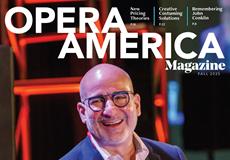Elektra
Composer: Richard Strauss
Librettist: Hugo von Hoffmannsthal
Company: Washington National Opera
| Performance Dates | |
|---|---|
| Saturday, October 29, 2022 | |
| Monday, October 31, 2022 | |
| Friday, November 04, 2022 | |
| Sunday, November 06, 2022 | Matinee |
| Wednesday, November 09, 2022 | |
| Saturday, November 12, 2022 | |
Synopsis
Elektra, Op. 58, is a one-act opera by Richard Strauss, to a German-language libretto by Hugo von Hofmannsthal, which he adapted from his 1903 drama Elektra. The opera was the first of many collaborations between Strauss and Hofmannsthal. It was first performed at the Königliches Opernhaus on 25 January 1909. It was dedicated to his friends Natalie and Willy Levin.
While based on ancient Greek mythology and Sophocles' tragedy Electra, the opera is highly modernist and expressionist in style. Hofmannsthal's and Strauss's adaptation of the story focuses tightly on Elektra, thoroughly developing her character by single-mindedly expressing her emotions and psychology as she meets with other characters, mostly one at a time. (The order of these conversations closely follows Sophocles' play.) The other characters are Klytaemnestra, her mother and one of the murderers of her father Agamemnon; her sister, Chrysothemis; her brother, Orestes; and Klytaemnestra's lover, Aegisthus.
Various aspects from the myth are minimized as background to Elektra's character and her obsession. Other facets of the ancient story are completely excluded, in particular the earlier sacrifice by Agamemnon of his and Klytaemnestra's daughter Iphigenia, which was the motivation for Klytaemnestra's subsequent murder of Agamemnon. These changes tightened the focus on Elektra's furious lust for revenge. The result is a very modern, expressionistic retelling of the ancient Greek myth. Compared to Sophocles's Electra, the opera presents raw, brutal, violent, and bloodthirsty horror. Some scholars detect hints of incest in Elektra's dysfunctional family relationships. Norwegian musicologist Ståle Wikshåland has analysed the use of time and temporality in the dramaturgy of Elektra.
Elektra is the second of Strauss's two highly modernist operas (the other being Salome), characterized by cacophonous sections and atonal leitmotifs. These works contrast highly with his earliest operas and his later period. The reception of Elektra in German-speaking countries was mostly divided along traditionalist and modernist lines.





